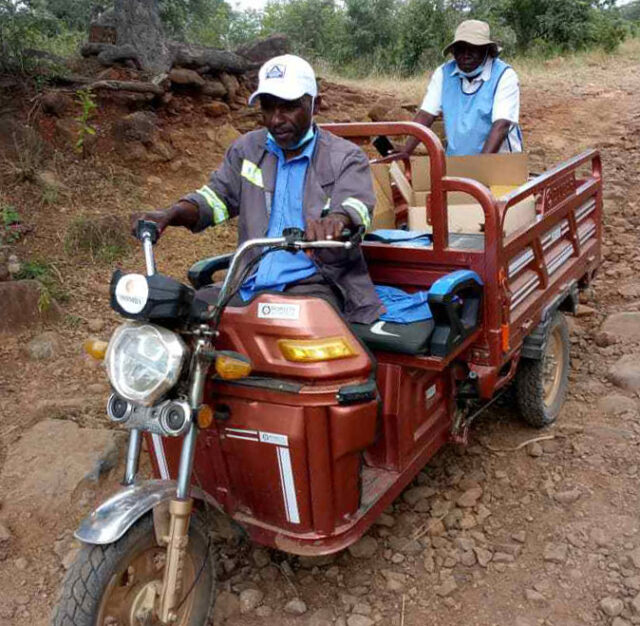In the dusty roads and winding footpaths of rural Zimbabwe, a quiet revolution is unfolding. It doesn’t roar with the sound of engines, it hums gently on solar power. At the heart of it are three‑wheeled electric tricycles known locally as “Hamba” meaning “go” in Ndebele.
These vehicles, leased to women for just US $15–30 per month through an innovative lease‑to‑own model, are transforming the lives of hundreds of women in communities often overlooked by mainstream development.
From Passengers to Drivers of Their Own Destiny
Traditionally, rural women have been the heartbeat of their communities, fetching water, taking produce to market, caring for children, and managing households. But with limited access to affordable transport, they faced long, exhausting walks and missed opportunities for income.
The Hamba program has flipped that narrative. Women like Anna Bhobho, a 31‑year‑old from Wedza, once had no say in family finances. Today, she runs a grocery store, owns land and a car, sends her children to private school, and earns up to US $300 a month comparable to a public school teacher’s salary.
Across Zimbabwe, over 300 women now own or operate Hambas, with Mobility for Africa aiming for 70% female ownership in the program.
Built for the Village, Powered by the Sun
The Hamba is no ordinary tricycle, it’s designed for Zimbabwe’s rural realities:
- Solar‑charged lithium‑ion batteries travel up to 100 km per charge.
- Battery swaps cost just US $1–5 at local solar stations.
- Carries up to 450 kg of goods and reaches speeds of 60 km/h.
- Locally assembled in Harare with durable parts, featuring a simple electric motor with few moving parts, reducing breakdowns.
This means they can access rugged tracks cars can’t reach, delivering goods, people, and services directly into the heart of remote communities.
Delivering More Than Just Passengers
Hambas have become lifelines in rural life. Farmers like Hilda Takadini no longer walk 18 km to sell produce she delivers fresh crops directly to market, earning better prices and ensuring school fees for her children.
The healthcare impact is equally powerful. In places like Igava:
- Clinic staff deliver vaccinations, nutrition programs, HIV testing, and emergency patient transport.
- Outreach times have been cut from eight days to just two.
- One mother battling malaria reached treatment in time thanks to a Hamba ride.

Shifting Gender Norms, Building Respect
Owning and operating a Hamba doesn’t just boost income it transforms social standing.
Anna says: “Even my husband and in‑laws now respect my opinion, they listen when I speak.”
By taking on traditionally male roles driving, transporting goods, providing services women are challenging long‑held gender norms and becoming recognized as leaders in their communities.
The Roadblocks Along the Way
Like any journey, the Hamba movement faces challenges:
- Rough terrain and weather can slow operations.
- Cultural resistance remains, with some men reluctant to accept women as transport business owners.
- Sustainability needs such as regular maintenance and battery infrastructure are crucial.
Mobility for Africa is addressing these by training local technicians, expanding solar‑powered swap stations, and engaging communities to shift mindsets.
A Vision Rolling Beyond Zimbabwe
The Hamba project has already gained international attention:
- Shortlisted for the 2023 Ashden Awards for sustainable rural transport and agricultural support.
- Inspiring similar programs in Rwanda, Ethiopia, and Uganda demonstrating solar mobility’s potential as a scalable, gender‑inclusive development tool.
Why It Matters
The Hamba story is about more than just wheels it’s about progress. It’s a rare blend of renewable energy innovation, economic empowerment, healthcare access, and social transformation.
When rural women have mobility, they gain not only income but influence. They stop being passengers in their own lives and start steering their families and communities toward a more independent, sustainable future.
The hum of a Hamba may be quiet, but in Zimbabwe’s rural heartlands, it’s the sound of change.



















